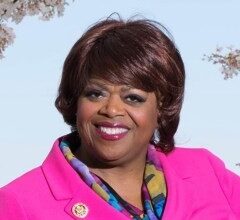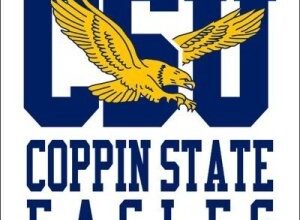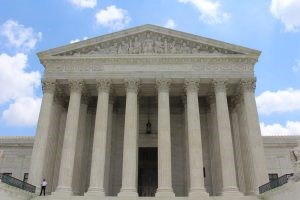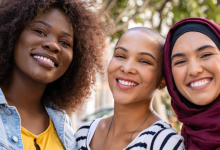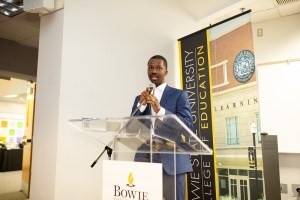
Bowie State University awarded $1.5 million to increase the pipeline of Black male educators
By Megan Sayles,
AFRO Business Writer,
msayles@afro.com
The U.S. Department of Education’s Augustus F. Hawkins Centers of Excellence Program recently awarded more than $1.5 million to Bowie State University (BSU) to support the school’s Black Male Educators Project. The initiative strives to increase the number of Black male teachers in early childhood, elementary, secondary and special education.
BSU was one of 12 schools given funding and the only historically Black university to receive it.
“The U.S. Department of Education funding really acknowledges our efforts to continue to expand this work and make the impacts that we need,” said Julius Davis, founding director of BSU’s Center for Research and Mentoring of Black Male Teachers and Students.
“I think it suggests that folks are recognizing the important work we’re doing and that it’s worth investing in.”
BSU will use the funding to recruit and train 50 Black male teachers and to revamp its curriculum to reflect contemporary research in race, ethnicity, culture, language, disability and technology.
It will also design five English for Speakers of Other Languages (ESOL) courses to help aspiring educators become certified in ESOL.
A 2018 report authored by Johns Hopkins University and American University researchers entitled, “The Long-Run Impacts of Same-Race Teachers,” found that Black students who have at least one Black teacher in grades K-3, are 13 percent more likely to graduate from high school and 19 percent more likely to enroll in college than their same-race classmates who do not have a Black teacher.
But the shortage of Black teachers is affecting students across the country.
According to the National Teacher and Principal Survey, completed by the National Center for Education Statistics, just six percent of public school teachers were Black during the 2020 to 2021 school year.
Of that 6 percent, less than 2 percent are Black male teachers.
“Instead of just researching the issue and talking about the issue, we develop programs to impact that number because when we look at the landscape, we don’t have a significant influx coming in from high school-based career programs and we don’t have a significant influx entering into the undergraduate teacher education programs,” said Davis, who is also a professor of mathematics education.
“I will say alternative certification programs and Master’s level programs have seen an increase, but it’s still not enough for us to change that statistic. We’re hoping to be able to create replicable and sustainable models that others can use to help impact the pipeline.”
Davis founded the BSU Center for Research and Mentoring of Black Male Teachers in 2019 to leverage research and create programming to increase Black male representation in the teaching profession.
The center’s programming includes the Black Male Educators and Leaders Alliance, the Black Male Teacher Initiative Consortium, the Scholar Fellows program and a speaker series.
The premier program is the Black Male Teachers College, which prepares Black male students in eighth through 12th grade to become education majors and teachers.
The program is led by Black college professors, Black college students and Black male teachers, and it features workshops that cover college preparation, career readiness skills and what it means to be a Black male teacher.
History and government secondary education student Alontae Elliott was one of the first scholars in the Black Male Teachers College program. He joined during his senior year of high school at Dr. Henry A. Wise, Jr. High School in Prince George’s County, Md.
Today, Elliott, a junior, serves as program director for the Black Males Teachers College at BSU.
“The exact same things that we promote today are the same foundations that we stand on. Oftentimes, the classroom is a traumatic experience for young Black men. The knowledge, the education, the learning and school are often not the best experiences for our young Black men and women in classrooms,” said Elliott.
“We have to correct the spirit, and we have to repair a lot of trauma in a little time because we need to give them a foundation to stand on and to get them to see themselves in our scholar identity framework.”
Through the Black Male Teachers College, BSU introduces students to the Black male scholar identity, which incorporates Black history, culture and values, as well as the fact that there are many different ways to stand in their Blackness.
“The most important part to me is that there is a variety of Black because oftentimes a lot of our students have either been boxed in, or they’ve only ever been exposed to Black in one way,” said Elliott.
“There’s no one way to be Black. There’s no one definition of what Black looks like.”
Megan Sayles is a Report for America Corps member.
The post Bowie State University awarded $1.5 million to increase the pipeline of Black male educators appeared first on AFRO American Newspapers .
This article originally appeared in The Afro.

